US President-elect Donald Trump has said that he told Israeli Prime Minister Benjamin Netanyahu to "keep doing what has to be done" while emphasising his desire to see the war between Israel and Hamas end.
He again warned that "all hell will break out" if both parties do not uphold the ceasefire-hostage agreement.
Trump told NBC News in a phone interview on Saturday that he plans to meet with Netanyahu "fairly shortly" but declined to share more details about a possible meeting.
He said he told Netanyahu "this has to end" but that he should "just keeping doing what you have to do".
When asked if he was confident hostages still held by Hamas in Gaza would be released as part of the agreement, Trump said, "Well, we're going to see very soon, and it better hold."
He added that the US will demand "respect" to ensure the agreement will be observed and warned of consequences if it does not hold.
"The United States has to get respected again, and it has to get respected fast. But respect is the primary word that I use," he said.
"If they respect us, it will hold. If they don't respect us, all hell will break out."
Trump's incoming national security adviser Mike Waltz and his incoming Middle East envoy Steve Witkoff worked alongside the Biden administration in helping facilitate the ceasefire agreement, which is expected to go into effect on Sunday.
Currently, 33 hostages are set to be released in exchange for 1,904 Palestinian prisoners beginning on Sunday, though Hamas has yet to provide a list of names to Israel.
Trump told NBC his administration will uphold the ceasefire with "good government".
"Respect. The United States has to be respected again, and it has to be respected fast. But respect is the primary word that I use," he said.
Israeli Prime Minister Benjamin Netanyahu said that he stuck to three "fundamental principles" in the negotiations that led to the ceasefire-for-hostages deal agreed with Hamas.
First, he said in a televised address on Saturday, was Israel's right to return to war, with the backing of the United States, if negotiations on the second phase of the deal break down.
Secondly, Netanyahu said he fought for a "significant increase" in the number of living hostages to be released in the first stage of the deal.
He claimed to have "nearly doubled" that number since discussions in May, but did not specify.
Thirty-three hostages are expected to be released by Hamas in the first stage of the deal, but it remains unclear how many of them are living.
Israel has typically included hostages who have died but whose remains have not been returned to Israel among its official hostage tally.
The third principle, according to Netanyahu, was that Israel would maintain full control over the Philadelphi Corridor — the thin strip of land along the Gaza-Egypt border — and the security buffer zone surrounding the entire Gaza Strip.
Israel's continued military presence in the Philadelphi Corridor was previously a sticking point in negotiations, but Netanyahu said Saturday that, "contrary to all the reports I hear from the outside," Israel was "not only not reducing the forces there — we are even slightly increasing them".

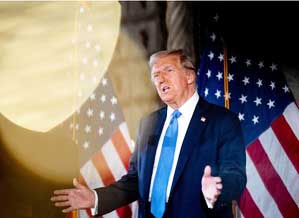
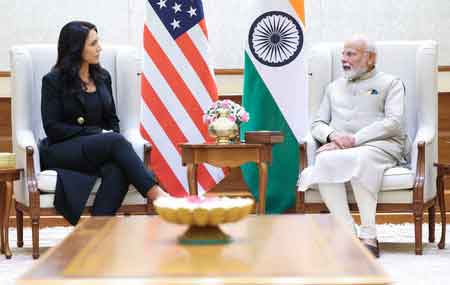
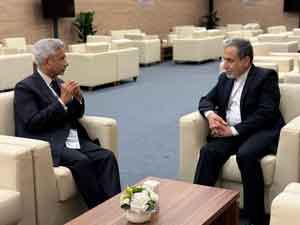
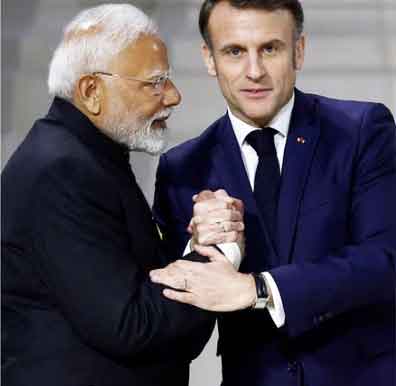
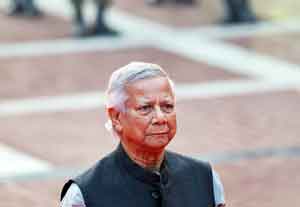


Suspected Bangladeshi flag on Rickshaw, two detained
Tension flared in the Joynagar area of Agartala on Thursday late night after locals detained two individuals in connection with a rickshaw allegedly bearing the national flag of Bangladesh.
Tripura holds significant position in blood donation: CM Dr Manik Saha
Chief Minister Dr Manik Saha on Friday inaugurated a blood donation camp here at Agartala and said that the government is mulling to open more blood banks in the state to maintain the balance between the demand and supply.
Tripura CM Saha holds key meeting with BJP, IPFT and TMP leaders
Tripura Chief Minister Manik Saha on Friday held an "important" meeting between the leaders of ruling BJP and its two allies – Tipra Motha Party (TMP) and Indigenous People's Front of Tripura (IPFT) and discussed various political and developmental issue, sources said.
HM Amit Shah's meeting sends a clear message: Not a drop of water to Pakistan
A high-level meeting was held on Friday at the residence of Union Home Minister Amit Shah regarding the suspension of the Indus Waters Treaty. The 45-minute meeting between the Home Minister and Union Jal Shakti Minister C.R. Patil focused on exploring ways to halt the flow of water to Pakistan.
Tripura: TMP chief urges Centre to adopt 'stronger policy' against B'desh
Ruling BJP’s ally Tipra Motha Party (TMP) founder-chief Pradyot Bikram Manikya Debbarma on Friday urged the Central government to adopt a stronger policy stance towards Bangladesh, accusing the neighbouring country of encouraging fundamentalist forces targeting Hindu minorities.
Pahalgam attack: More countries express solidarity with India, offer support in fight against terrorism
Ambassadors of Israel, Egypt, Argentina, and Nepal met External Affairs Minister (EAM) S. Jaishankar in New Delhi on Friday, expressing solidarity with India in its fight against terrorism following the heinous terror attack in Pahalgam.
Tripura CM directs SPs and DMs to remain vigilant about Pakistani nationals
Tripura Chief Minister Manik Saha on Friday directed the Superintendents of Police (SPs) of all eight districts to regularly share necessary inputs with the Chief Minister’s Secretariat regarding the presence of any Pakistani nationals in the state, officials said.
US supports India's 'hunt' for those behind 'horrific Islamist terrorist attack' in Pahalgam, says Gabbard
Tulsi Gabbard, Director of National Intelligence (DNI), on Friday said that the United States supports India's "hunt" for the perpetrators of the "horrific Islamist terrorist attack" in Pahalgam that took place earlier this week.